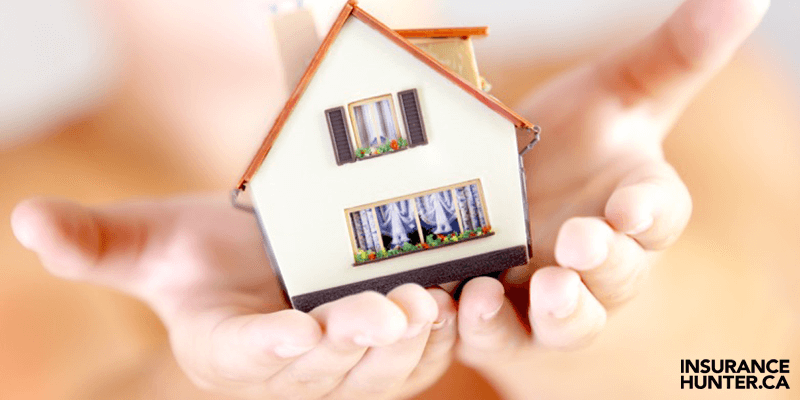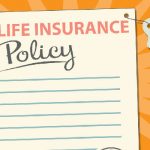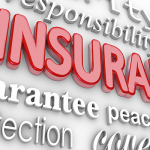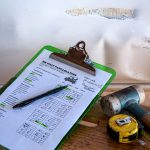
Insurance Guide
Last year the UK’s average premium for Buildings Insurance increased by 1% to just over £205 and the average for Contents Insurance rose to £151, up 2%. But within the market we’ve seen some much bigger rises – if you’re with Norwich Union you’ll have seen your premium rise by around 6%.
So what’s going on? Every year we see premiums rising. Surely with so much competition in the home insurance market, you wouldn’t expect to see such inexorable rises in premiums?
Let’s consider the situation more carefully.
The cost of repairing and rebuilding houses is a reflection of the rising price of labour and building materials. This means that cost to the insurers of claims under the buildings cover similarly rises. So as their costs rise, so do your premiums. And there’s also the indisputable fact that cost inflation also affects the insurance companies own operating costs. Wherever possible, they’re bound to add a little extra on for that!
Then there’s that lovely British weather. Michael Fish could be forgiven for believing we don’t live in a hurricane zone, but nevertheless it’s a fact that storms, and especially floods, are becoming ever more frequent. Flood damage can be particularly destructive with, according to the Association of British Insurers, the average insurance claim ranging between £15,000 and £30,000. And during the last 18 months we have seen particularly destructive floods create headline news at Helmsley in North Yorkshire, Carlisle, and Boscastle in Cornwall. Those events must have cost the insurance companies multi-millions.
The other area where costs have been rising is burglary. The average burglary claim has now risen to around £1,400. There seem to be two reasons – firstly burglars are finding pickings easier to come by and move on. Modern family homes are packed with valuable electronic gismos – from laptops to I pods, digital cameras and flat screen TV’s. The other reason is that burglars are targeting well-off neighbourhoods more and more.
Against this background the insurance companies are able to price home and contents insurance down to individual postcodes. If their records show a problem with flooding, or subsidence, or an increasing incidence of burglary in you immediate area, their computers will load your premium to reflect the additional risk.
Your no-claims discount will only serve to offset these upward pressures to a certain extent. And don’t forget that once you have a five years no-claims record, your discount doesn’t increase, it’s capped. Thereafter, all the premium increases will land fully in your lap.
So what can you do to save money?
The most important step by far, is to shop around every year for the best available deal. Maybe it’s a chore, but thirty or forty minutes on the Internet (including ten minutes on this web site!) will yield you results. Within that space of time you’ll have found the cheapest insurer and, as an online customer, you’ll probably have qualified for an additional 10% discount. Then you can always agree to pay by direct debit – that’ll also trim off a bit more.
Of course there are other things you can do, especially in the arena of home security. Join the local neighbourhood watch scheme, install security locks on your windows, fit external security lighting, up-grade the locks on your doors and get a burglar alarm. Added security will earn you discounts on your insurance but will cost you money to install! Perhaps the added peace of mind alone will be worth the cost. Only the local neighbourhood watch scheme arrives free!
The best general rule is don’t stick with the same insurance company too long. Keep them on their toes. They have a tendency to take loyal customers for granted. Yes, it really does pay to shop around – try it and prove it to yourself!

Insurance Guide
The best homeowner insurance is the insurance that best meets your needs. The insurance shopper that takes the time to understand the basic elements of home insurance will have much more confidence and sense of satisfaction when making an insurance purchase. The homeowner policy has been around for a long time and so most of us have a general concept on how the policy works. The more you know about the market value of your home and the approximate cost to rebuild it the better off you will be when shopping for the homeowner policy.
This kind of knowledge is the foundation for determining what kind of policy to purchase. The age of your home has a direct bearing on the market value. The older homes built in the 1900’s have much lower market values today because most of them have depreciated. The market value for an older Victorian style home may be $50,000 but the actual cost to rebuild that home may be $200,000. The older homes that depreciate in market value are insured with actual cash value policies. They are often called market value policies. These policies will reimburse you for the market value of your home when there is a total loss. The market value policy is the best homeowner policy for the older home that has depreciated.
The replacement cost policy is better designed for newer homes or homes under construction. The replacement cost of a home and the market value are almost the same. Replacement cost is applied to the dwelling and most often to the contents of the dwelling. Replacement cost will repair or replace any loss with like kind and quality of materials without depreciation.
The best homeowner insurance for you will be determined by the age and market value of your home. The discounts for older and newer homes are the same. The protective device discount for deadbolt locks, smoke detectors, and fire extinguisher apply to both types of policies. Fire and burglar alarm systems are additional discounts that could be applied to both older and newer homes. Check our recommended insurers for more details.

Insurance Guide
Making a purchase as big and important as a home owner insurance policy should be taken seriously. Undoubtedly, you want to purchase your policy from the best company, as well as get the best home owner insurance quote.
How can you do that?
When it comes to home owner insurance quotes, what sets the insurance companies apart?
Home owner insurance companies are set apart in many ways. Look at the rating of the home owner insurance companies in question, as well as whether or not they are licensed to do business in your state. Home owner insurance companies also differ in the level of coverage they offer and the kinds of coverage you can add on to your home owner insurance policy.
While you’re shopping for the best home owner insurance quote, find the company’s rating. This will let you know how financially stable the insurance company is. Talk to family members, friends, and neighbors about the home owner insurance companies with which they do business. Unless they are employees of the company, they’ll be more than willing to dish the dirt – both good and bad.
What really makes the best home owner insurance quote?
The best home owner insurance quote varies from person to person. You want to get a quote for a home owner insurance policy that offers the exact coverage you want at a rate that will not completely drain your bank account. Therefore, you need to check out several different home owner insurance companies. Ask about coverage, price, additional coverage, and discounts.
Where can I find everything I need to know about home owner insurance in my state?
Your state’s department of insurance has all the information you need to know about home owner insurance coverage in your state. The insurance department will also be able to provide you with a list of home owner insurance companies and agents licensed to do business in your state.

Insurance Guide
What is the best homeowners insurance for you? The answer is probably not that obvious to you because most of us have not taken the time to understand our homeowner’s insurance. We would much rather turn that responsibility over to the insurance professionals. There is nothing wrong with that approach but it still leaves you a little bit too uninvolved over a very important insurance purchase. People have a natural fear of the unknown. We like to steer clear of things that are unfamiliar to us. Our insurance is often one of those things that we would rather just avoid. That may come in part from the old days when insurance was purchased under pressure from the insurance agent. That method of sales has just about vanished in property and casualty insurance. People willingly contact agencies about policies and coverage. The agent is more like a consultant these days. The best homeowners insurance is usually purchased when we ourselves have a better understanding of our policy and how we want to be serviced. The insurance atmosphere is much more professional and there are more ways to purchase insurance. Purchasing online or by telephone is becoming as common as purchasing from the local agent.
The homeowner’s policy itself has a couple of integral features and benefits to consider. Buying replacement cost insurance verses actual cash value insurance is one of your most important decisions. Replacement cost homeowner’s policies settle any loss by replacing or repairing your dwelling and its contents with like kind and quality without depreciation. Actual cash value allows for depreciation and expects you to make up the difference as an out of pocket expense.
The most important cost savings decision that you will make is the size of the deductible. It makes sense to have as high a deductible as possible on your home policy because of the infrequency of claims.
The best homeowner’s insurance for you revolves around how you want to do business, whether to purchase replacement cost or actual cash value, and the size of your deductible. These three areas will lead you in the right direction.

Insurance Guide
Rating of Homeowners insurance depends on various factors. The most knowledgeable buyer usually finds the best home insurance rate. To get the best homeowners insurance rate, you should do a bit of research work. If you cannot time yourself for it you can of course seek professional help. This approach is timesaving but you have to be cautious about your advisor.
Here are some tips to get the best homeowners insurance rates.
1. First of all you should get the basic understanding about your home insurance rate and the different policies. You have to know who regulates the rate. It is the individuals of an insurance company who decide on the home insurance rates and these rates are regulated by the insurance department of the state. The state insurance department is the approving authority; it is only after their approval the rates can be passed on to the customers.
2. Before applying for homeowners insurance, you should shop around, so that you get the best homeowners insurance rates. To maximize your options you should make a search of your own. Enquire with your local bank, lenders and credit unions. Today, many banks have official websites; you can send your enquiry online. After completing your search, compare with those available in the advertisements. This will make it easier for you to get the best deal.
3. Some insurance companies provide more than one kind of insurance policy. For example, they will give you better rate if you buy auto policy along with home insurance. It also helps you get better home insurance rates.
4. Many insurance companies are associated with security companies like Brink’s or ADT, these companies offer you better rates if you install a home security system.
5. Not only better rates, you can even get discounts if you are ready to install motion sensors or video surveillance cameras in your home, provided by the associate companies of home insurance company.
While keeping these points in your mind, you can get the best homeowners insurance rates.

Insurance Guide
Who knows, you are going out for a long drive, and your car breaks down midway. Experts say that there is more than 10% chance of breaking down each year if your car is more than 3 years old. It is worse in the winter. You can avoid breakdowns by taking precautionary measures like re-servicing your vehicle each month. However, getting your breakdown insurance is a good option to protect you financially if your car vehicle breaks down when it is least expected to.
Types of Breakdown Cover
Roadside Rescue: If your vehicle breaks down outside a specific distance radius from your home, breakdown insurance would pay for the servicing amount except the charge for new parts. The company will provide you with other helps. However, the incident is at your home or within specified radius of your home, and then it won’t be covered.
Home Rescue: It covers the same as the roadside rescue; it extends the coverage to your house. It includes getting your vehicle checked at the local garage.
Recovery Plus: It covers both home and roadside breakdowns. It provides a hire car to either return home or continue your journey. And also it covers the cost of alternative transport to enable your journey or return home to be completed. If the breakdown happens a set of miles away (specified in the policy), accommodation in a local hotel while awaiting completion of repairs will also be provided.
Continental Cover
In UK, European Rescue Breakdown covers roadside breakdown in continental driving. It covers the charge of repairing or bringing your car back to UK in case your car can’t be repaired. However, it doesn’t cover the charge of new parts. So, it is always wise to have this insurance, if you are driving across Europe as you can face fees for roadside assistance charge for every kilometer your car is being towed.
Partners and Family
Some policies also cover spouse or partner; however check it with the insurance company. Some companies look whether your spouse or partner is living with you at the same address. Family cover includes you, a partner and usually two children under 21 living at the same address as you. Check whether your policy covers all the persons traveling in the car.
You need to wait nearly 25 minutes to an hour for a roadside assistance. Some policies fix the number of calls to five or six each year. You may get more if you have a joint cover or family cover. If you exceed the limit you must pay for the assistance. Policies do not cover the cost of new parts. Some policies do not cover trailers and caravans. Animals are usually not covered.










































